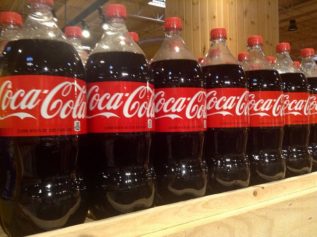“What should I eat before a workout?” The answer depends on a number of things and is very individualized. Typically, if you are eating a healthy diet and getting enough calories to support your daily activity level, you can probably rely on your energy levels and your appetite as an indicator of what you will need for pre-workout fuel. Trial and error will also be the main way you figure out what works for you.
The size, timing, and content of your pre-exercise meal or snack can play an important role in your energy level during your workout and whether the calories you eat will be used as fuel or stored as fat. Eating too much before you exercise can leave you feeling horrible and unable to get your workout in. Eating too little may not give you enough energy to keep you feeling strong throughout your workout. Here are some tips for figuring out your plan for pre-workout fuel.
Hydration
To hydrate for exercise, the American College of Sports Medicine recommends that you:
Drink roughly 16-24 ounces of water two to three hours before your workout.
Drink about 4-8 ounces of water every 15 to 20 minutes during your workout. You may need more the larger your body is or the warmer the weather is.
Drink roughly 16-24 ounces of water after your workout for every pound of weight you lose during the workout.
Water is generally the best way to replace lost fluids. But if you’re exercising for more than 60 minutes, use a sports drink. Sports drinks can help maintain your body’s electrolyte balance and give you a bit more energy because they contain carbohydrates.
Timing of Your Snack or Meal
Exercising on a full stomach is not ideal. Food that remains in your stomach during a workout may cause stomach upset, nausea, and cramping. Allowing your meal to digest generally takes 1 to 4 hours, depending upon what and how much you’ve eaten. Everyone is different; you should experiment to determine what works best for you. The larger the meal and the more fat, protein, and fiber it contains, the longer you may need to wait before exercising.
Large meals – Eat these at least three to four hours before exercising.
Small meals – Eat these two to three hours before exercising.
Small snacks – Eat these an hour before exercising.
You need to figure out what works for your body. Many people feel that they need to eat something before a workout, then only workout for 30 minutes at an easy to moderate intensity, and find that they really didn’t need a snack. If you don’t need to eat before a workout, don’t. You don’t want to make the mistake of overeating.
Try a Snack (30-60 Minutes Before Exercise)
If it’s been a long time since your last meal, you may just need a little something to help boost your blood sugar. Your blood sugar has a tendency to dip 15-20 minutes into a workout. That drop in blood sugar can cause fatigue, mild dizziness, or even faintness, especially if your blood sugar was already low. Eat something beforehand to help prevent this. If you get very hungry during a workout and it interferes with your energy levels or focus, or you become so ravenous after an exercise session that you end up overeating, try eating before you hit the gym to avoid these problems.
Snack ideas:
Fruit juice
Low-fat smoothie
High-glycemic fruits like pineapple, apricots, banana, mango, and watermelon
Sports drinks
Pretzels
Snack bars (look for 3-5 grams of protein, at least 15 grams of carbs, and very little fat)
Energy gels
Low-fat yogurt
Low-fat milk
Eat a Small Meal (1-3 Hours Before Exercise)
Most of the fuel you use during your workout doesn’t come from the food you’ve recently consumed. It actually comes from the carbohydrates, glycogen, and fat that are stored in your muscles, liver, and fat cells. That’s enough to fuel 1-2 hours of very intense exercise or 3-4 hours of moderate intensity exercise.
If your overall diet is adequate, you may not need to eat anything before you exercise. However, for those of you who like to workout first thing in the morning, most of the energy you got from dinner the previous night is used up by morning, and your blood sugar may be low. If you don’t eat, you may feel sluggish or lightheaded when you exercise.
If you need more time between when you eat and when you exercise, you might want to include something with more lean protein.
Small meal ideas:
Fruit and yogurt
Cereal and low-fat milk
Trail mix with nuts and dried fruit
Hummus and raw veggies
Hard boiled eggs or egg whites
Low-fat cottage cheese and fruit
Half a peanut butter or turkey/chicken sandwich on whole grain bread
Whole grain crackers with nut butter
Whole grain Fig Newton cookies
Yogurt smoothie
Energy bars
Caffeine
It used to be thought that caffeine could boost endurance by stimulating a greater use of fat for energy, and thereby reserving glycogen in the muscles. However, when caffeine improves endurance, it does so by acting as a stimulant to the central nervous system. Those who are very sensitive to the effects of caffeine may experience nausea, muscle tremors, and headaches. Too much caffeine is a diuretic, and can result in dehydration, which decreases performance. Your normal routine of 1-2 cups of caffeine should be okay, but again, experience is the key. Be aware that caffeine can be found in energy drinks, energy bars, and certain supplements.
Let experience be your guide
When it comes to eating and exercise, everyone is different. So pay attention to how you feel during your workout and your overall performance. Let your experience guide you on which pre-exercise eating habits work best for you. Consider keeping a journal to monitor how your body reacts to meals and snacks so that you can tweak your diet for optimal performance.
Source: Jennifer Bayliss, MSEd, ATC, CSCS, Fit Hacks

